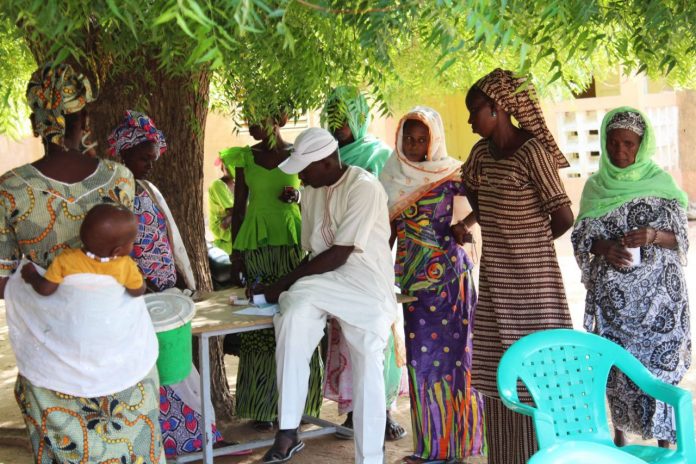* Sub-Saharan Africa’s healthcare market will reach an estimated $35 billion by 2016.
* At a 2001 African Union (AU) meeting in Abuja, Nigeria, African countries agreed to allocate 15 percent of their budgets to healthcare. As of 2014, only six countries (Botswana, Burkina Faso, Malawi, Niger, Rwanda and Zambia) have met this commitment.* Four of the six countries allocating 15 percent of their budget still only spend US$14 dollars per capita on health.
* Between 2000 and 2009, government health expenditure in Africa increased from US$13.6 billion to $43.3 billion, a 92 percent rise in real terms.
* Government expenditure on health as a proportion of GDP grew from 2.3 percent in 2000 to 2.5 percent in 2009 in Africa, with per capita expenditures rising from US$16.8 to $43.4 in the same period.
* An estimated 500,000 – 650,000 hospital beds are to be built in the next decade in Africa, with resulting in demand hospital equipment, medical devices and pharmaceuticals.
* Hospital development across Africa is increasing opportunities for international healthcare investors and solution providers involved in hospital equipment, pharmaceuticals, medical technologies and other healthcare services and products.
* Africa today has a shortage of about 800,000 health workers, based on goals set for 2015 under the UN Millennium Development Declaration.
* There is one doctor for every 2,000 people in Africa. Several countries have more doctors abroad than at home.
* For every Liberian doctor working in Liberia, two work abroad.
* Zimbabwe has 45,000 traditional healers and only 1,400 medical doctors.
* For every 1000 people in sub-Saharan Africa, only 2.5 healthcare workers are available to them.
* Africa only has about 3 percent of the world’s human resource, or health workers, population.
* Africa has only about 1 percent of all the funding for health in the world.
* Those living in Africa’s urban areas are more likely to receive better healthcare services than those in rural or remote regions.
* About 24 percent of the world’s disease burden is borne by Africa.
* Chronic conditions such as obesity and heart are expected to overtake communicable diseases as Africa’s biggest health challenge by 2030.
* Malaria is widespread and kills one African child every 30 seconds, making it the leading cause of death among children under five years old in many African countries.
* As of 2011, deaths linked to malaria had fallen by 33 percent since 2000.
* AIDS-related deaths fell by 30 percent between 2004 and 2010 in sub-Saharan Africa, 32 percent between 2005 and 2011.
* HIV/ AIDS infection rates fell 25 percent in sub-Saharan Africa between 2001 and 2011, faster than the global rate of 20 percent.
* Obesity rates in sub-Saharan Africa are estimated to be three times higher in urban areas than in rural ones.













